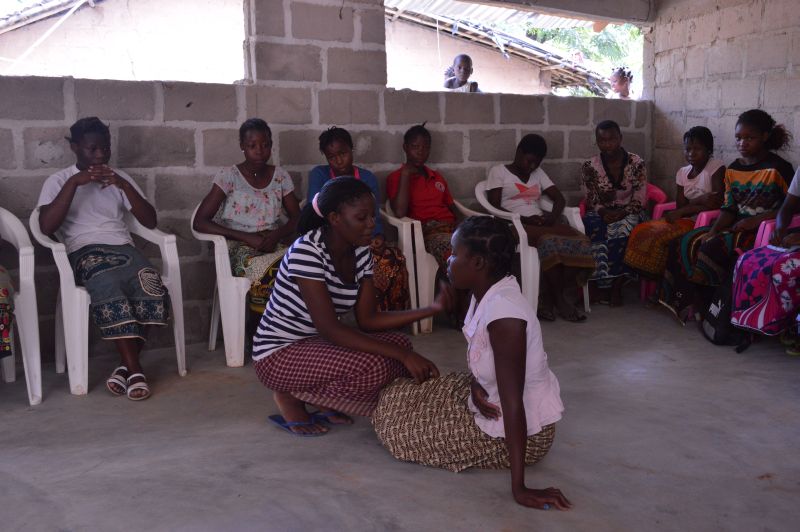Rapariga Biz prevents fistula in Mozambique

“In my community, it is difficult not to see adolescent girls aged 15 to 16 years pregnant or as young mothers”, says 18-year-old Lucia Aiuba Amade from Quelimane in Mozambique's province Zambezia.
Childbirth at an early age is associated with greater health risks for the young mother. In fact, complications of pregnancy and childbirth are the leading cause of death in young women aged 15 to 19 years.
Teenage pregnancy often force girls to drop out of school, and expose them to the risk to develop a fistula.
Lucia is one of 783 mentors trained under “Rapariga Biz” - the first joint United Nations programme on sexual and reproductive health and rights for teenage girls in Mozambique led by the government with technical assistance by UNFPA, the United Nations Population Fund, UN's educational and scientific organization UNESCO, UN's children's agency UNICEF and UN's women's agency UN-WOMEN, funded by the Swedish International Development Assistance (SIDA).
In Mozambique, an estimated 2,300 new cases of fistula occur every year. This is largely due to the high rates of teenage pregnancy and early marriage. According to a survey by the Ministry of Health, 46 per cent of girls between 15 and 19 years are pregnant or mothers and 48 per cent of girls are married before 18 years.
Rapariga Biz aims to reach 1 million girls and young women of 10-24 years from 2016 to 2020 to address the pressing sexual and reproductive situation of girls and young women in the provinces of Nampula and Zambezia.
Mentors prevent fistula
“Our communities lack information about fistula, and the girls and young women are the ones to bear the consequences. Those living with fistula are isolated and discriminated against. We can help prevent this child birth complication under Rapariga Biz,” says Lucia Aiuba Amade.
Each mentor is leading a session with some 30 girls between 10-14 years or 15-19 years each week for six months in a safe space in the community identified by the girls and young women themselves.
In the first year, Rapariga Biz has reached a total of 23,518 women and girls.

In the safe space, they learn and discuss about life skills, solidarity, human rights, including the right to live free of violence and child marriage, sexual reproductive health, the consequences of early pregnancy and how to prevent it.
Fistula has a dedicated session: “We need to ensure that the girls and young women understand the causes and consequences of fistula to empower them to make informed choices and delay the first pregnancy,” says 22-year-old Amina Carlos Antonio.
Promoting the rights of teenage girls
“The key to eliminate fistula is prevention, specifically through prevention of child marriage and teenage pregnancy which sits at the heart of our efforts as UNFPA targeting the most vulnerable girls and young women. It is essentially about their rights to health and life,” says Bettina Maas, UNFPA Representative in Mozambique.
The ability to control the own fertility is fundamental to the empowerment and equality of women and girls. Apart from the preventive efforts, UNFPA is supporting Mozambique's Government in ensuring the availability of treatment and social reintegration for fistula survivors.